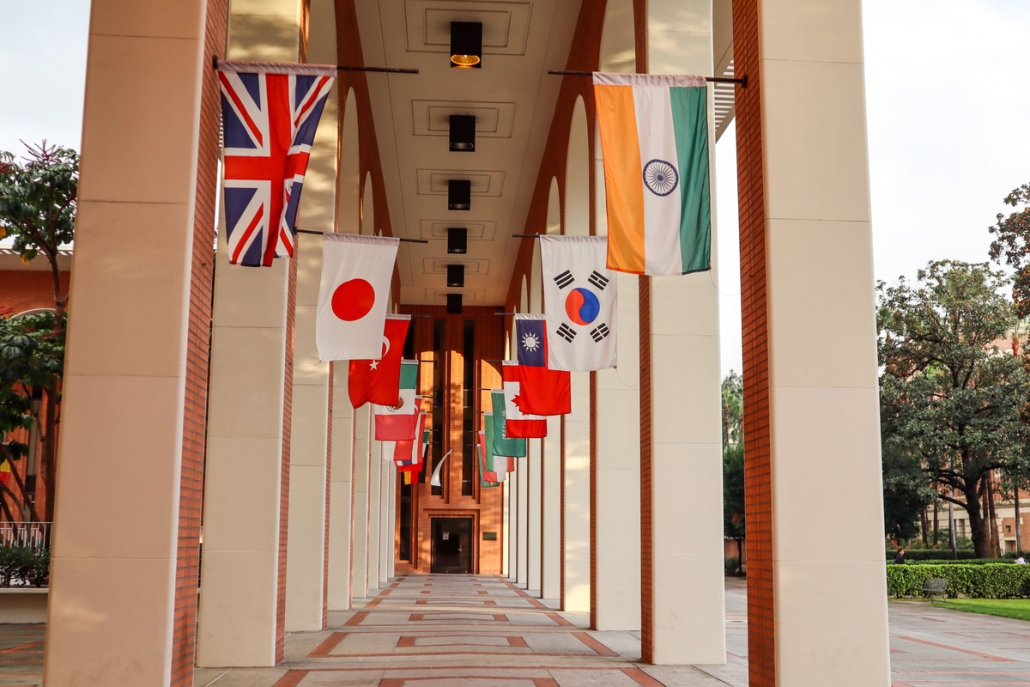Faculty respond to virtual class testing period

Some professors expressed concerns about the feasibility of transitioning from in-person classes to online after USC announced it would test virtual software to hold lecture and seminar classes online this week amid concerns regarding coronavirus.
The University decided to move classes online for a three-day trial period Wednesday through Friday. The announcement follows a Feb. 28 email to faculty requesting that all schools design continuity plans to prepare for the possibility of a shutdown due to increased virus spread.
Brian Bernards, an associate professor of East Asian languages and cultures and comparative literature, said his classes, which include a general education lecture and a general education seminar, will be relatively easy to translate into online format. However, he has had to adapt his lesson plans to the virtual platform, and the guest speakers he had invited to lecture Thursday will have to deliver their talks through Zoom.
“There’s going to be definitely a learning curve for many faculty who have not run classes in this way and weren’t expecting to develop curriculum that wasn’t necessarily developed with an online function in mind or a remote learning function in mind,” Bernards said.
Bernards said a longer period of virtual classes would not come as a surprise, citing the University of Washington’s Friday decision to move classes online for the remainder of the quarter.
“I see it as a learning experience or something that I should be prepared to do and should try in the case that this goes forward,” Bernards said. “I don’t know what the likelihood is that classes will be moved online for the remainder of the Sspring … but I think we should be prepared.”
Bob Bailey, an adjunct lecturer in the School of Dramatic Arts, said the format of many SDA courses would make holding them online difficult. The school will allow performance-based classes to continue in person during the trial period, SDA Dean David Bridel told faculty after the University-wide virtual class announcement.
“I was a little bit concerned about it at first because of the nature of the classes that I teach and where we were in terms of midterm assignments,” Bailey said. “They’re acting and directing classes. They have to be conducted in person.”
Bailey said a more permanent switch to online classes would pose problems, especially for classes in SDA and other performing arts schools which might not be able to deliver content as effectively if classes are taught remotely.
“I would hope that the University would proceed cautiously in that area because … especially in what I teach, we have advantages to being in person,” Bailey said. “But if, in their judgment, they felt that it was the safest thing for students, the faculty and the staff for the school to be shut down, that would be a judgment call on their part.”
Bernards said he was understanding of any delay in notice regarding the trial of remote classes, saying the spread of coronavirus was difficult to anticipate and the University was making changes as updates were released.
“I haven’t necessarily had a personal complaint about the amount of transparency,” Bernards said. “The whole situation around coronavirus is pretty fast-developing, and they’re also dealing with an administration and national response that’s then overly slow.”
Pierrette Hondagneu-Sotelo, a sociology professor, said she had practiced adapting her classes to a different virtual classroom program and said that while teaching on Zoom would be a difficult transition, she believes the trial is an important step in preparing for the possible spread of the virus.
“As a senior professor, I’m less agile with adopting new technologies, so privately I grumbled to myself, you know, and I’ve now spent some time and I’m getting up to speed with it,” Sotelo said. “But most importantly, I think it’s the right thing to do. It’s an important preventative public health measure.”
The online class trial has proved more challenging for professors whose classes had scheduled midterms Wednesday, Thursday or Friday. Some, like “Data Journalism,” have opted to postpone exams, while others have moved their assessments online.
Bernards said the Zoom trial raised questions about the possible implications of continuing online classes after spring break. He said he was unsure about how he would teach his general education seminar without being able to ensure a distraction-free environment.
“For my large lecture course, of course, there’s a final exam that’s on paper that I don’t want to just submit out to the world,” Bernards said. “I’m still deciding, ‘How would I approach those types of assignments that it’s critical where students are there in person, where it’s on paper?’”
The University has emphasized that the move to virtual classes this week is a trial for a possible shutdown rather than a direct response to the virus.
Gov. Gavin Newsom declared a state of emergency in California Wednesday after the state’s first death due to coronavirus was announced. More than 100 cases of coronaviruses to date have been diagnosed in California.
The Los Angeles County Health Department confirmed its first coronavirus case acquired by community transition Monday, bringing the county’s coronavirus diagnosis count to 19. Universities along the West Coast, including Stanford University and the University of Washington, have moved classes online for the remainder of the quarter.

